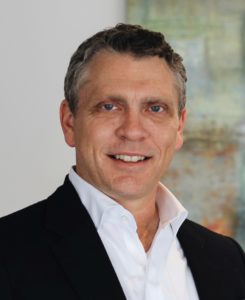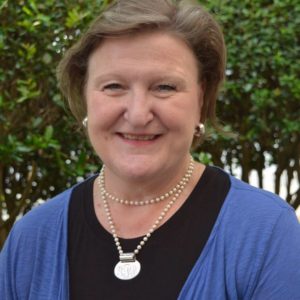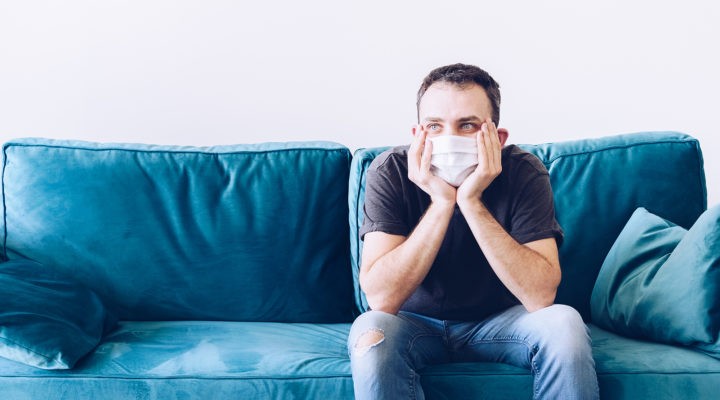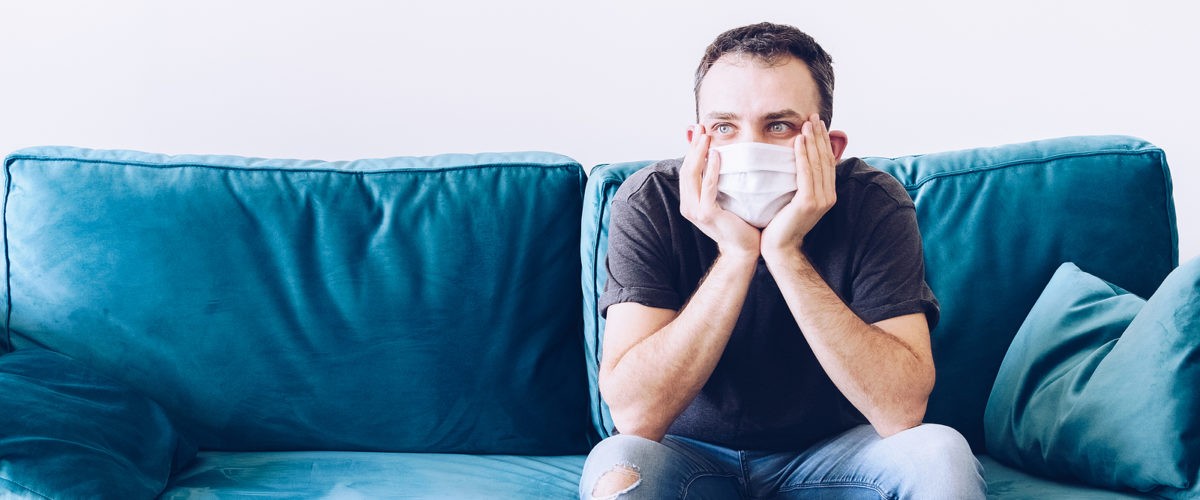The physical effects of coronavirus aren’t the only cause for concern as churches — and the whole nation — navigate COVID-19. With much uncertainty over the virus itself, professionals report increased anxiety and stress due to health concerns, unemployment, social isolation and more.
Mental health must be taken into consideration the same as the physical side of health, said Brad Schwall, CEO of The Center for Integrative Counseling and Psychology Dr. in Dallas.

Brad Schwall
“We’re created for relationships,” he said. “We thrive on social interaction, and the lack of that interaction certainly has an impact. We try to get information out in the community to open up the conversation. Mental health is a health issue.”
Churches historically have provided care for those in need, and Schwall thinks churches can be active resources in their communities to help connect people to care for mental health needs during COVID-19.
“Churches are significant partners in our work. People regularly go to the church if they’re dealing with a crisis or dilemma in life,” he said. “The church is another connecting point with communities to help people to be healthy.”
Anxiety on the rise
A wide-ranging study of 2,700 people by Qualtrics at the beginning of the pandemic found 67% reported higher levels of stress, 57% had greater anxiety, 54% experienced greater day-to-day sadness, and 42% said their overall mental health had declined since the outbreak. These numbers run parallel to what Schwall sees in The Center’s work — both the number of clients and number of sessions have increased throughout the year and also in comparison to last year.
This large multi-site counseling practice has adapted to social distancing requirements while still providing their clients with a strong sense of security that counselors are there for them.
Schwall cited many differences in the way his work operates now, some good and some bad. Telecounseling may create problems for a therapist in reading social or non-verbal cues. And while clients and therapists prefer to be together in the same room, telecounseling provides easier access to counseling. “Many enjoy the convenience,” he reported. “It’s also been convenient because clients haven’t had to travel to their sessions.”
A shared trauma
In an unusual twist, therapists now find they often share the same circumstances as their clients. Eric Minton, co-owner and psychotherapist at Minton Family Therapy in Knoxville, Tenn., said the coronavirus has created a sense of solidarity among many people. But it also has created a sense of loneliness because people feel like they can’t ask for help when everyone has the same problem.

Eric Minton
“So rarely in my life am I having the same kind of traumatic experience, at the exact same time, as every person I’m working with,” Minton said. “Literally everyone has the same problem, and no one is OK.”
Since March, Minton’s practice has been fully based around telecounseling services. He said referrals took a large dip after the outbreak began for about a month, but then rebounded into a steady flow of appointments once people realized the coronavirus and its effects weren’t going to disappear anytime soon.
For the first time in Minton’s professional career he has clients he has helped for months, but whom he never has seen in person. Although this is a manageable adjustment, Minton worries that mental health isn’t always a priority, especially for those who are struggling financially due to the pandemic.
“People are losing their benefits. People are losing their employment. Often in our business, when income is significantly cut, the first thing out the door is mental heath care,” Minton said. “That’s mostly my fear. There’s a huge need for (mental health care), because none of us are doing very well. But in a financially or economically uncertain time, people are saving their money.”
Churches are frontline providers
Before returning to graduate school to pursue more training in psychotherapy, Minton worked as a pastor in California and Tennessee and witnessed the complexities of mental health work within church communities firsthand. He frequently felt unequipped to deal with mental health issues when church members came to speak with him, and he realized he needed more psychotherapy training to better help those in need.
“Instead of talking about what happens to people after they die, I would love it if churches started talking more about what happens to people while they’re alive.”
“Churches are this de facto social service safety net, except they’re often woefully unprepared to care for it,” Minton said. “Churches can be so helpful by having access to people’s existential well being. Instead of talking about what happens to people after they die, I would love it if churches started talking more about what happens to people while they’re alive. That would really be helpful for us.”
Minton suggests that churches reach out to mental health care providers in their areas to find out what services are provided and collaborate to share resources. If the church has the means, he even suggests designating budget funds to support mental health initiatives.
“Reach out to providers in your area, build relationships with them, and bring them on board to help them be helpful to your congregation,” Minton said. “And then creating a community where we’re educating people constantly in terms of how do you care for yourself when you notice you’re not yourself. Churches have a really amazing opportunity to be something helpful for people in our community.”
Chaplains are struggling too
These same challenges extend to the hospital, where even chaplains are learning new ways to be spiritually present to those in need.

Grace Powell Freeman
Grace Powell Freeman, chaplain at Cobb Hospital in Austell, Ga., normally would visit patients and their families in their hospital rooms, but not now. With in-person visits not an option, she and her colleagues have used iPads and even baby monitors to stay in contact with patients coping with the uncertainties of COVID-19, or in some cases the loss of a loved one.
The emotional and spiritual stressors are not confined to patients and their visitors, however. Freeman cited mental trauma issues faced by hospital staff members who are on the frontlines of caring for COVID-19 patients. For example, one night she consoled a young doctor who spoke to her after three patients died due to the virus during one shift. The doctor was distraught.
“This is not what I went to medical school to do,” she told Freeman. “I went to medical school to make people better.”
As cases in Georgia continue to rise, Freeman predicts anxiety levels will continue to rise as well. She says that stress is compounded even more as people traverse the re-opening of businesses and workplaces.
“The anxiety level of people has skyrocketed. I’ve sensed that in my own family, in patients I’ve worked with and families I’ve worked with,” Freeman said. “I see it even more heightened right now with everything being opened up and the number of cases increasing.
“I see the weariness in their eyes. People are just tired of it,” Freeman continued. “It’s not just nurses and doctors, but it’s me, my young adult children, it’s everyone. I think that’s leading to some of the mental and emotional struggles people are having of what do you do to take care of yourself in the midst of all this.”
It’s OK not to have a happy face
Freeman suggests people consider talking about how they are feeling, and she believes the church can be a proponent for this. Although sometimes in church people are expected to “put on our happy face,” it is OK to let people know you are struggling, she said.
“For so long, mental health issues have had such a stigma about them. I’m a firm believer in going to a therapist, having a time to talk to somebody who can help you work through something,” Freeman said. “It’s OK to let someone know you’re mad or sad or anxious or whatever you might be. I think if anything, the church could help by saying that out loud.”
Schwall agrees and suggests people need to find reasons for hope amid the pandemic. “Hope that things will get better, but also a transcendent hope in that we always have control of how we view our lives,” he said. “We always have control over having a positive outlook on life, having empathy for others, and living in a healthy way.”
Editor’s note: If you or someone you love is experiencing a difference in mood over time and finding yourself feeling helpless, it is important to seek help and to know you are not alone. If you do not know where to begin, Psychology Today’s website offers a national resource and starting point.


